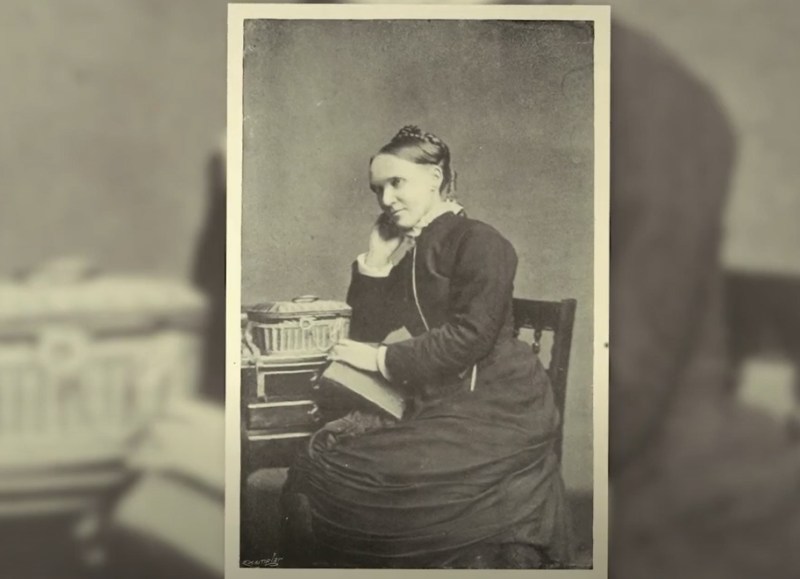The Holy Spirit: He Will Guide You In Truth (Part 2)
Sign up for a six month free
trial of The Stand Magazine!
(Editor's Note: Click HERE to read Part 1)
The Holy Spirit’s primary ministry is to make Jesus visible to the world (John 16:14). Enabling spiritual gifts (e.g., teaching, preaching, Christian service, faith, charity, fortitude, knowledge, piety, etc.), illuminating the Scriptures, animating worship, inspiring spiritual disciplines (e.g., prayer, fasting, study, solitude, etc.), comforting, healing, and protecting believers—all the ministries of the Holy Spirit—ultimately serve the greater goal of testifying to the lordship of Jesus. All of this is to say, the Holy Spirit testifies to the life-changing truth that Christ reigns.
Jesus says in John 16:13–15,
When the Spirit of truth comes, he will guide you into all the truth, for he will not speak on his own authority, but whatever he hears he will speak, and he will declare to you the things that are to come. He will glorify me, for he will take what is mine and declare it to you. All that the Father has is mine; therefore, I said that he will take what is mine and declare it to you.
As will be discussed later in the detail, the Holy Spirit glorifies Jesus by applying the redemptive work of Jesus in the lives of believers. What Jesus has done for us the Holy Spirit does in us. Because the Holy Spirit’s primary ministry is to glorify Jesus, it is inevitable that the Holy Spirit is self-effacing. The Bible itself is evidence that the Holy Spirit much prefers to talk about Jesus than Himself. The Bible doesn’t say nearly as much about the Holy Spirit as it does about Jesus. In fact, the entire Bible is all about Jesus. Jesus did not say to the men on the road to Damascus, “let me show you how the Bible testifies to the Holy Spirit” (Lk 24:27). To the contrary, “he [Jesus] explained to them what was said in all the Scriptures concerning himself.”
The fact that all of the Bible points to Jesus attests to the self-effacing, Jesus-glorifying nature of the Holy Spirit. In 2 Timothy 3:16 Paul says that all Scripture is “God breathed.” In other words, the words of Scripture are spoken by God, and the Holy Spirit is the breath of God that carries the divine Word into the world. If the Holy Spirit is a key player in the inspiration of the Bible, and the Holy Spirit is always talking about Jesus, then it follows that the Bible is always talking about Jesus.
Acts 2 testifies to this very point. The highlight of this story of Pentecost for many Bible readers is that when the Holy Spirit comes, the disciples speak different languages. This is an important part of the passage, but it is not the main point of the story. The main point of the story, rather, is that Peter boldly proclaims the gospel that Christ reigns. Speaking in different languages was merely the means to this greater end. When the Holy Spirit comes, He points to Jesus.
Commenting on Pentecost, A. W. Tozer writes, “Contrary to what most people unintentionally assume, the important thing here was not that the Spirit had come—the important thing was that Jesus had been exalted.” Tozer goes on to say,
It is plain that the glorification of Jesus brought the Holy Spirit, and we ought to be able to get hold of that thought instantly. So, we repeat: Where Jesus is glorified, the Holy Spirit comes. He does not have to be begged—the Holy Spirit comes when the Savior is glorified. When Christ is truly honored, the Spirit comes (Tozer, 1993, p. 3).
The implication of this is that we have to be careful not to be overly preoccupied with the Holy Spirit. This frustrates the Holy Spirit. Many in history have fallen into this trap. We read about a case like this in Acts 8. This story recounts the first heresy to rise against the Holy Spirit. As the story goes, Simon, a magician, wanted only the power that came with the Holy Spirit. Rather than being an instrument in the hands of the Holy Spirit, he wanted the Holy Spirit to serve as the means to his own ends. Sadly, he wasn’t interested in the redemptive work of Jesus as the fulfillment of the mission of God to the world. His motivations for knowing the Holy Spirit were selfish.
The text says, “When Simon saw that the Spirit was given when the apostles laid their hands on people, he offered them money to buy this power. ‘Let me have this power, too,’ he exclaimed, ‘so that when I lay my hands on people, they will receive the Holy Spirit!’” (Acts 8:18–19).
Peter rebukes Simon for this. Peter says,
May your money be destroyed with you for thinking God’s gift can be bought! You can have no part in this, for your heart is not right with God. Repent of your wickedness and pray to the Lord. Perhaps he will forgive your evil thoughts, for I can see that you are full of bitter jealousy and are held captive by sin (Acts 8:20–23).
This story reveals the danger of pursuing the Holy Spirit with the wrong motivations.
Jesus and the Bible both as the “Word of God,” then, are God’s unique way of revealing Himself in the world. By virtue of being the “body of Christ,” the church is also a form of special revelation. The conformity of the church to the image of Christ makes Christ visible in the world. This means that the indwelling fire of the Holy Spirit in believers not only purifies, and illuminates, but also illuminates the church as testimony to the existence of God. Jesus says to the church:
You are the light of the world. A city built on a hill cannot be hid. No one after lighting a lamp puts it under the bushel basket, but on the lampstand, and it gives light to all in the house. In the same way, let your light shine before others, so that they may see your good works and give glory to your Father in heaven (Matt 5:14–16).
Jesus is saying that the very faith, love, and obedience of the church are signposts to the existence of God. This is what the life of holiness is all about: testimony. Only God can recreate the human heart. Only God is capable of turning a Saul into Paul, and a Simon into a Peter. This radical transformation in the lives of people who are completely abandoned to God reveals the very real reign of Jesus over the creation. Holiness in the lives of people testifies to the truth of the biblical message.
Isaiah 2:2–5 paints this beautiful picture of end times:
In days to come the mountain of the Lord’s house shall be established as the highest of the mountains, and shall be raised above the hills; all the nations shall stream to it. Many peoples shall come and say, “Come, let us go up to the mountain of the Lord, to the house of the God of Jacob; that he may teach us his ways and that we may walk in his paths.” For out of Zion shall go forth instruction, and the word of the Lord from Jerusalem. He shall judge between the nations, and shall arbitrate for many peoples; they shall beat their swords into plowshares, and their spears into pruning hooks; nation shall not lift up sword against nation, neither shall they learn war anymore. O house of Jacob, come, let us walk in the light of the Lord!
Here we see that the nations are drawn to God because of the testimony of Israel’s holiness. Israel lives in such a way that the nations can’t help but take notice.
Even before Jesus, however, God made Himself known in special ways. This is what the Old Testament is largely about: Israel’s testimony to the special revelation of God. It’s Israel’s way of saying, “We have seen the living God and here’s our story about it!” In the Old Testament God spoke to Abraham, appeared to Moses in the burning bush, led Israel through the desert, and He spoke through His prophets.
Even with examples of God’s special revelation in the Old Testament there was a normative means for God’s presence as well, and that was the temple. In the Old Testament the temple was the main place of God’s presence. The temple was the designated meeting place of heaven and earth. We will explore the temple in greater detail in the next chapter, as it is impossible to understand the Holy Spirit as well as the symbols of the Holy Spirit without first understanding the temple.
Conclusion
Paradox pervades Christian theology because the Christian message is not human invention, but divine revelation. One of the many paradoxes in Christian theology is the doctrines of the transcendence and immanence of God. These two doctrines teach that even though God is not restricted by time and space, His presence is everywhere and always in the creation. Furthermore, while God is omnipresent, there are special ways in which God reveals Himself in the creation. In the Old Testament, the normative, sacred dwelling place of God was the temple.

Sign up for a free six-month trial of
The Stand Magazine!
Sign up for free to receive notable blogs delivered to your email weekly.


















